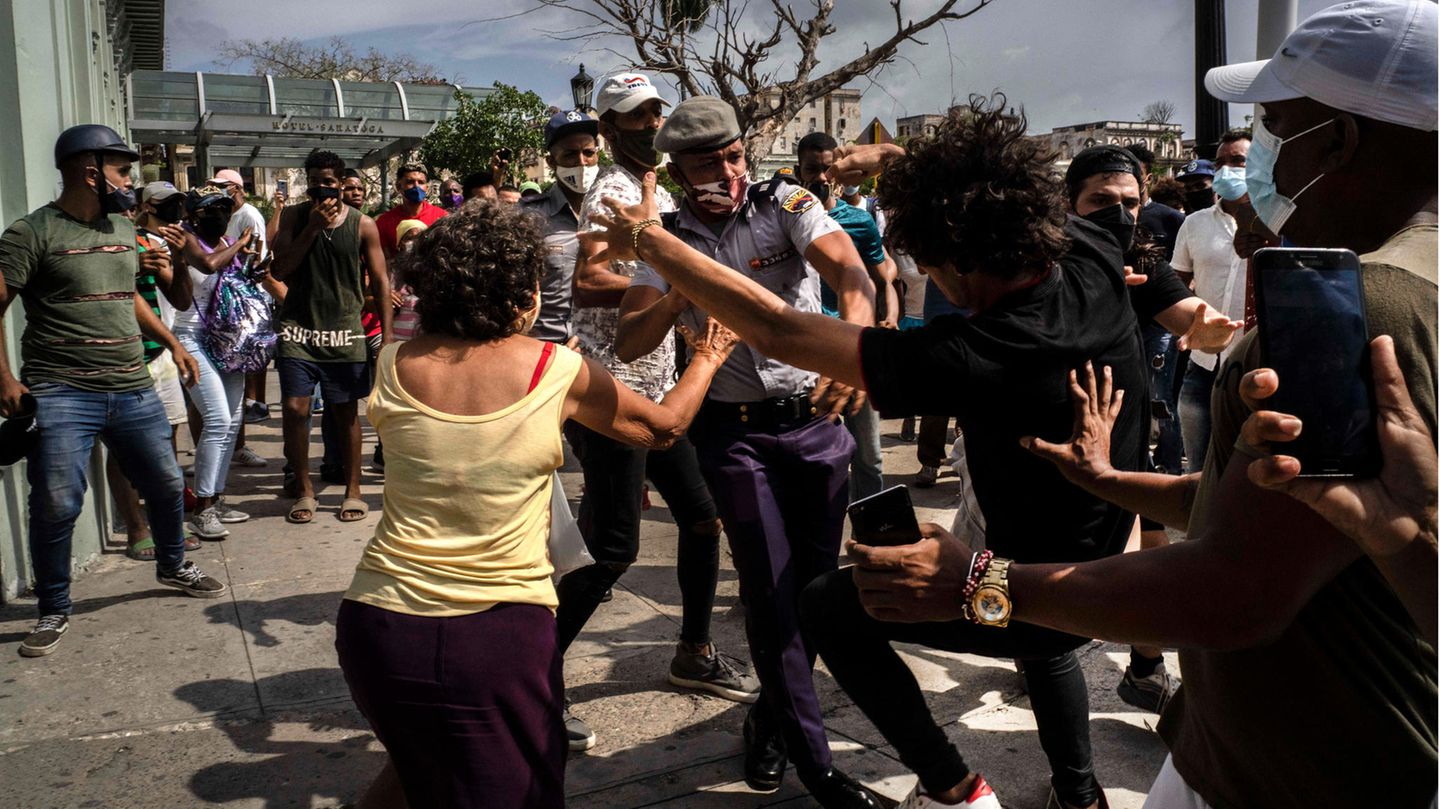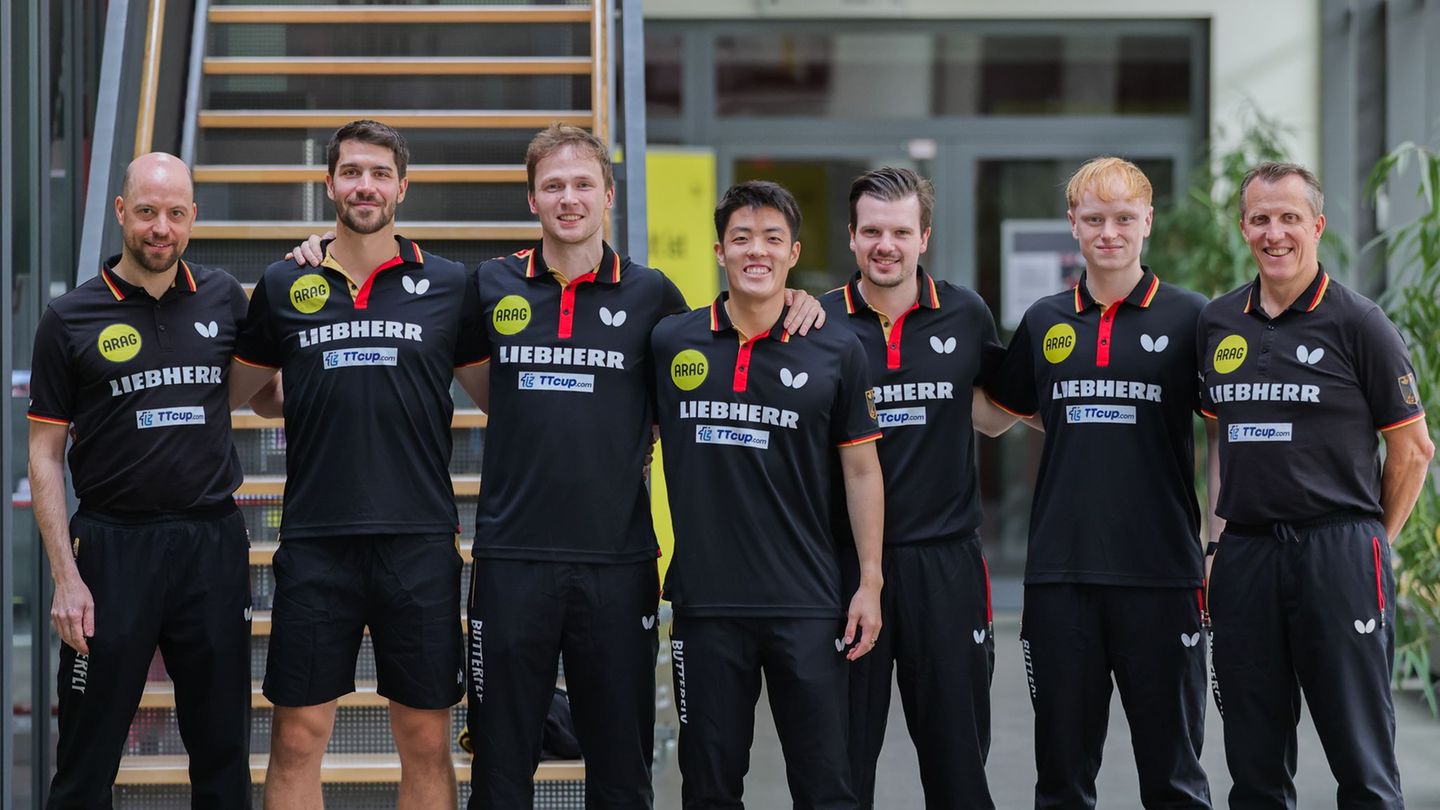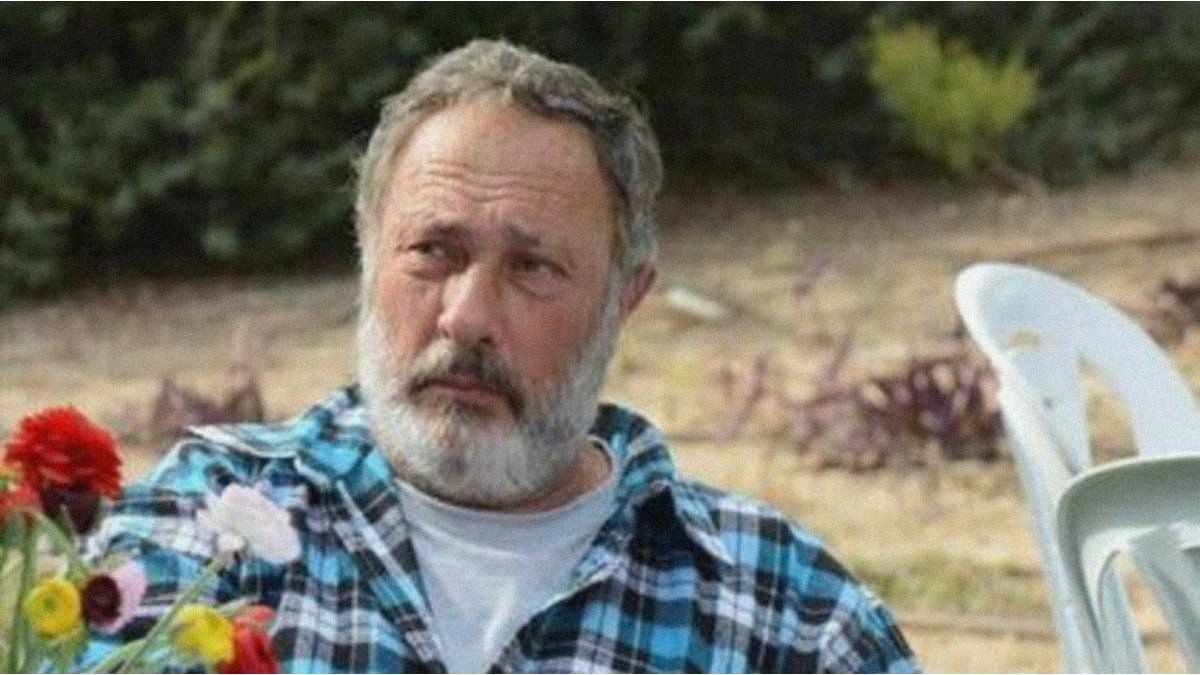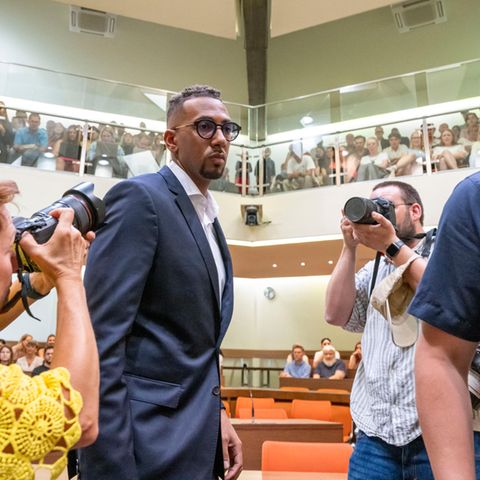Cuba’s worst economic crisis in 30 years provokes protests. Thousands of people have been demonstrating against the government for days – and the government is brutally cracking down on the activists. A man was killed on Monday.
One person died in the unprecedented anti-government protests in Cuba. A 36-year-old man died on Monday in a demonstration on the outskirts of Havana, the Cuban Interior Ministry announced on Tuesday. According to activists, the authorities of the Caribbean state are cracking down on the demonstrators. 144 people were arrested or missing, according to the San Isidro protest movement.
According to the Interior Ministry, the dead is a man named Diubis Laurencio Tejeda. The official Cuban news agency reported that he was involved in the “unrest” in the country. The Home Office expressed its “regrets” over the death of the man.
Economic crisis: Thousands of people protest in Cuba
Thousands of people took to the streets in Cuba on Sunday to express their displeasure with the worst economic crisis in 30 years. The demonstrations took place in dozens of cities. There were also protests on Monday and Tuesday.
Protesters shouted, among other things, “Freedom” and “Down with the dictatorship”. The nationwide demonstrations are extremely unusual for Cuba. The only gatherings allowed are usually events of the ruling Communist Party.
On Tuesday, numerous people were looking for their relatives or friends in Havana. A woman who asked about her 21-year-old son at a police station in the capital reported numerous arrests in her neighborhood.
Police crack down on protesters
The police took many people with them, “young and old,” she said. The security forces picked up your son at home. He was handcuffed and beaten. The provisionally arrested director and opposition activist Yunior García also claimed to have been beaten by security forces. “We were treated like rubbish,” wrote García, one of the best-known faces of the artist protest movement 27N, on the online service Facebook.
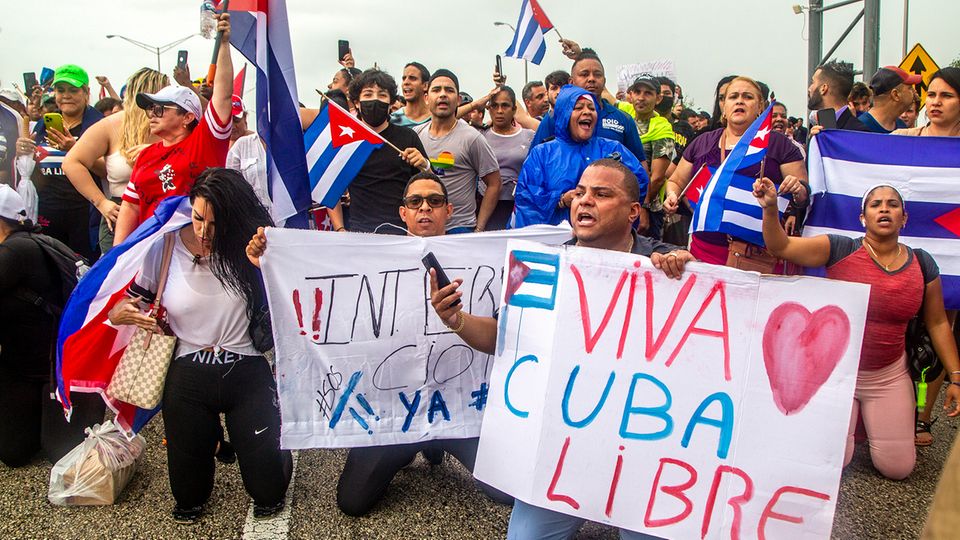
The senior US diplomat Julie Chung condemned the violence against the demonstrators, their arrests and the “disappearance of independent activists”. Spain’s Foreign Minister José Manuel Albaren was dismayed by the arrest of the Cuban journalist Camila Acosta, who had worked for the conservative Spanish newspaper “ABC” and the opposition website “Cubanet”. Acosta had to be released “immediately,” said Albaren.
Foreign Minister Bruno Rodríguez criticizes the US government
According to the Cuban official newspaper Granma, President Miguel Díaz-Canel met with his predecessor Raúl Castro and the rest of the Communist Party’s Politburo on Tuesday to discuss the protests. According to “Granma”, the politicians “analyzed the provocations orchestrated by counter-revolutionary elements” that were “financed by the US for the purpose of destabilizing” Cuba.
Foreign Minister Bruno Rodríguez also accused the US government of provoking the demonstrations “with its policy of sanctions and a campaign on the Internet”. Rodríguez stressed that the protests were by no means to be seen as “an outburst of social anger”. The unrest was “on a very limited scale”. The Cubans are still “behind the revolution and its government”.
Cuba limits social networks
The Catholic Church in Cuba called on the government and the demonstrators to “come to an agreement” to prevent violence. The Cuban Bishops’ Conference lamented the “immobility” of the government, which prevented a solution to the problems. The bishops also emphasized the right of Cubans “to express their needs, wishes and hopes”.
The US called on Cuba on Tuesday to lift restrictions on the Internet and “respect the voice of the people”. Data from the London-based organization Netblocks showed that access to services such as Whatsapp, Telegram, Facebook and Instagram was restricted in Cuba on Monday.
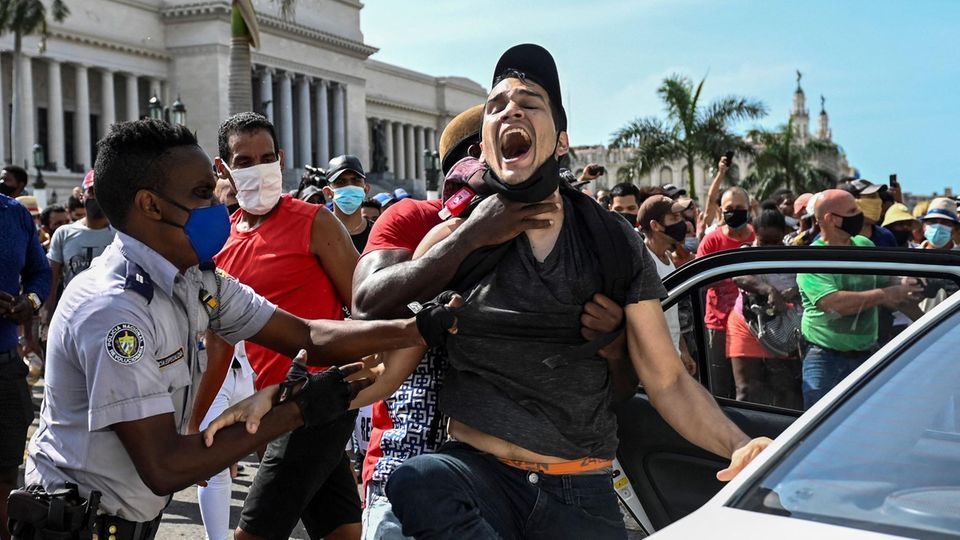
Access to “all means of communication” must be granted, “online and offline,” stressed US State Department spokesman Ned Price. US President Joe Biden had previously expressed his support for the protesters in Cuba.
US Secretary of Homeland Security Alejandro Mayorkas warned Cubans to try the dangerous escape by sea to the USA because of the situation in their country. “Regardless of their nationality, migrants who are intercepted at sea are not allowed to enter the United States,” Mayorkas clarified.
David William is a talented author who has made a name for himself in the world of writing. He is a professional author who writes on a wide range of topics, from general interest to opinion news. David is currently working as a writer at 24 hours worlds where he brings his unique perspective and in-depth research to his articles, making them both informative and engaging.

